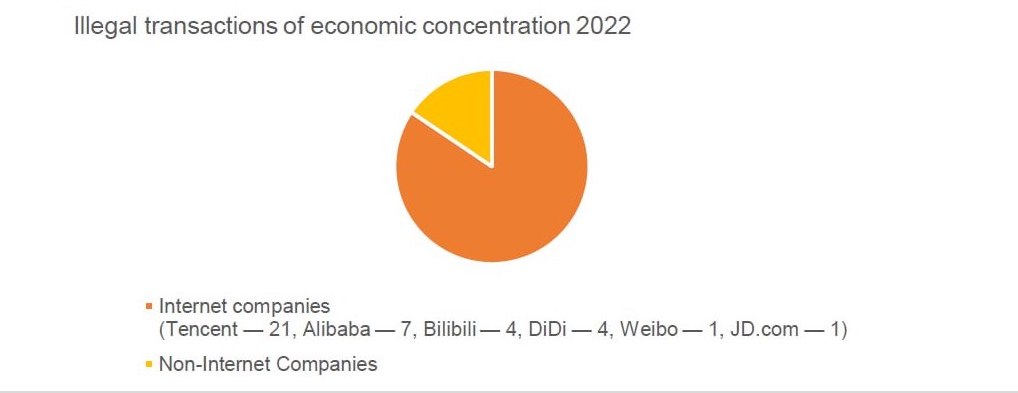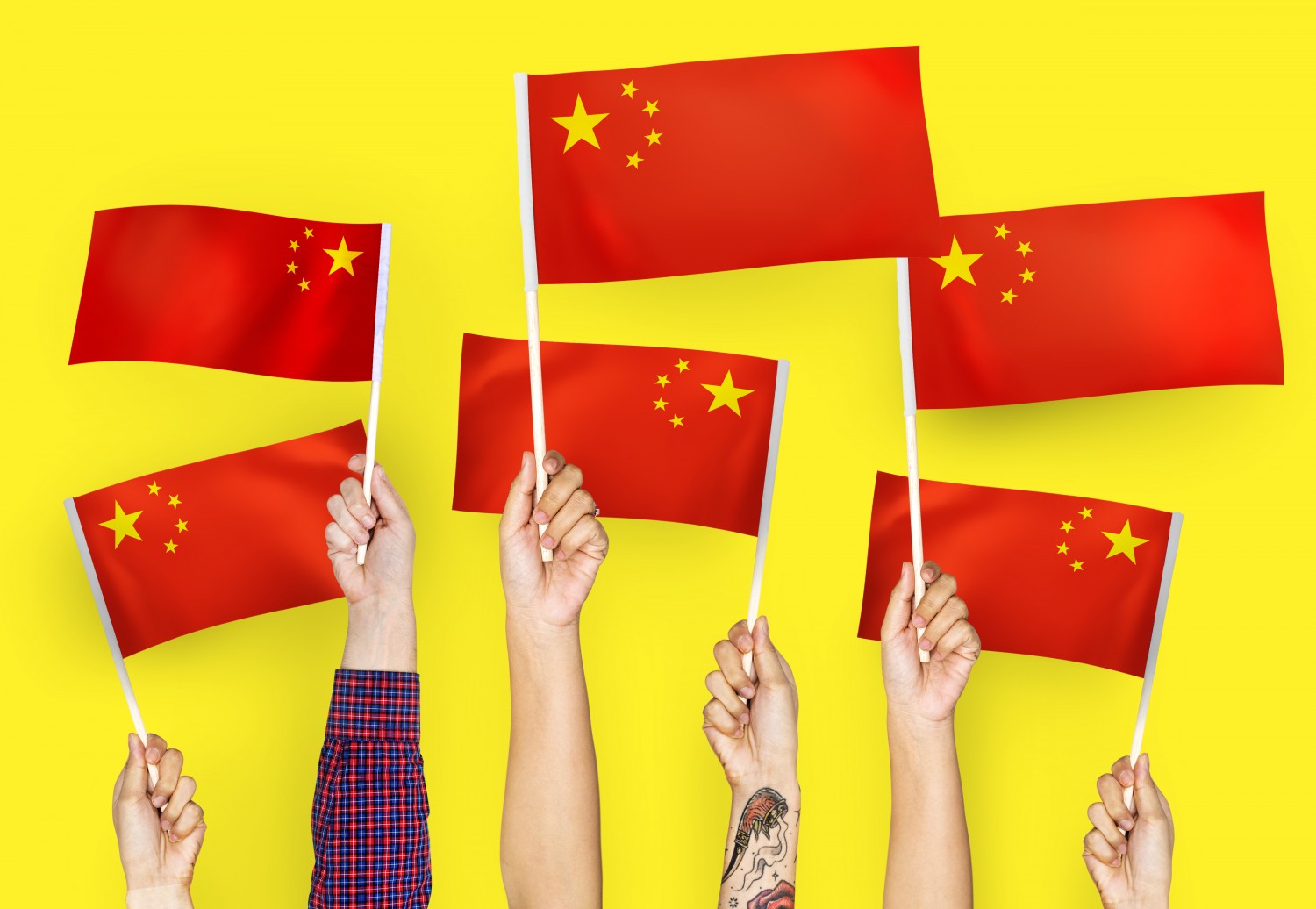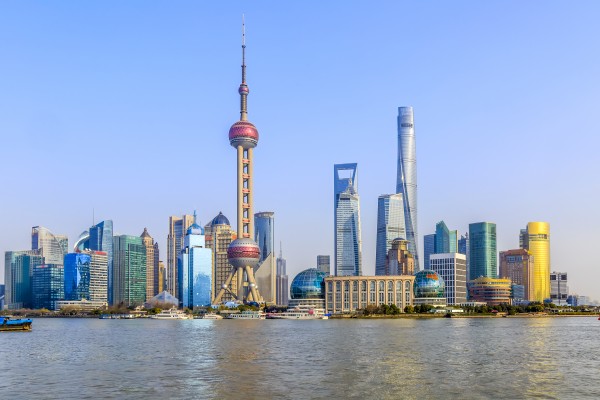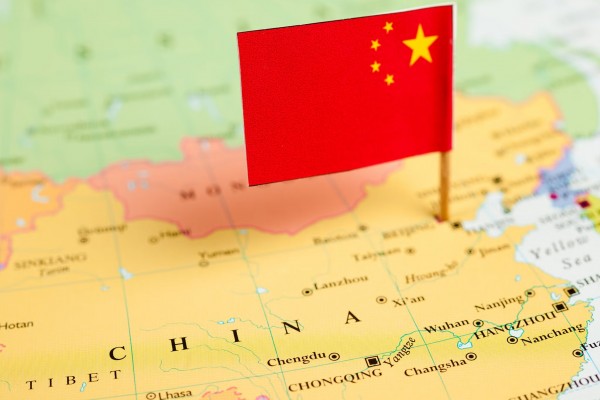Review № 5 of Chinese Antitrust News from the Experts of the BRICS Competition Centre
- MIIT met with tech giants
- Foreign IPO regulation developed
- Luo Wen took part in the ESCAP political dialogue
- Bloomberg report on call to beware of big four auditors debunked
- EC and Canada block TikTok for employees
- More than 70% of Chinese companies have maintained or expanded their overseas investments
- CSRC bans the use of feng shui in market analytics
- Small businesses required to report data exports
- Measures to regulate Internet applications
- Fighting youth addiction to short videos
- The first computing power trading platform is launched
- Southern Finance Report on Antitrust Regulation of the Internet
- Successes of the New Year's campaign to "clean up" the Internet
- Quality is a marker of the competitiveness of the state
MIIT met with tech giants
A symposium on the development of the Internet was held in Beijing - the event was attended by Deputy Head of the Ministry of Industry and Informatization (MIIT) Zhang Yunming along with the leaders of the country's key technology companies - Robin Li (Baidu), Pony Ma (Tencent), William Ding (NetEase), Shen Jiangying (Xinhua), Lei Jun (Xiaomi), etc. Also, for the first time since the cybersecurity review began, DiDi founder Cheng Wei attended the symposium. The meeting highlighted the role of Internet companies in building infrastructure and developing key innovations, as well as the importance of deepening the integration of the Internet into the real economy. The speakers announced the systematic creation and renewal of 5G networks, fiber optic networks and data centers, the introduction of cloud technologies, the development of AI and quantum computing.
Most recently, China unveiled the country's digital development plan: according to the document, by 2035 China will be at the forefront of global digital development. The plan aims to create a digital China with an efficient digital infrastructure, digitalization of agriculture, manufacturing, finance, education, healthcare, transportation and energy, a thriving cyber culture and broad access to digital public services, and environmental governance. based on digital technologies.
Sources: Baijiahao, SCMP, People's Daily
Foreign IPO regulation developed
The Securities Regulatory Commission has published a set of rules governing the listing of Chinese companies on foreign exchanges. The intention to expand the openness of the capital market remains unchanged, the agency said. The rules establish the obligation for companies wishing to directly or indirectly conduct an IPO abroad to register with the regulator and introduce penalties for failure to comply with this requirement: the system is designed to ensure compliance when listing on foreign sites. When registering, it is necessary to disclose data that can be regarded as a state secret. The Commission reserves the right to block an application if it threatens national security, or the company or its shareholders have been found to be corrupt, bribery or are under investigation. According to the SCMP, the new measures will end an era of virtually unregulated Chinese companies' overseas listings, which will now follow clear rules and be overseen by the regulator.
Sources: Csrc.gov.cn, SCMP, WSJ
Luo Wen took part in the ESCAP political dialogue
SAMR leader Luo Wen took part in the High-Level Political Dialogue of the United Nations Economic and Social Commission for Asia and the Pacific (ESCAP). He said that China adheres to the course of economic globalization, promotes the liberalization and facilitation of trade and investment, and supports regional cooperation. In the era of globalization, mutual assistance and mutual benefit are possible only if the principles of openness, tolerance and interconnectedness are observed. China will widely apply generally accepted international standards and conformity assessment procedures to make a unique Chinese contribution to the elimination of technological barriers to trade, the free circulation of goods and services over a wider area, and the promotion of sustainable development.
Source: SAMR
Bloomberg report on call to beware of big four auditors debunked
The state-run Global Times denied Bloomberg's report that China's Treasury Department instructed state-owned companies to "reject contracts with the Big Four for data security reasons." By contrast, some of the top four auditors have most recently won tenders to serve SOEs, according to the Global Times. One of the employees of the leading state fund confirmed that the company did not receive any instructions from the Ministry of Finance, which initially actively promoted the Quartet's entry into the Chinese market.
Sources: Global Times, Bloomberg
EC and Canada block TikTok for employees
The European Commission has banned employees from using the TikTok app to protect the EC from cybersecurity threats and cyberattacks on its corporate environment. The solution is purely internal and only applies to corporate mobile network devices. The commission said that the security performance of other media platforms is also under constant review. As a TikTok speaker noted, the company is “disappointed with this decision, which we believe is based on misconceptions and fundamental misconceptions. We have already contacted the Commission to clarify the situation and explain how we protect the data of 125 million users.”
In parallel, Canada announced a ban on the use of TikTok on public mobile devices. “This could be just the first step or the one and only step we need,” said Prime Minister Justin Trudeau. In addition, a joint investigation against TikTok was announced by the privacy authorities of Canada and its provinces of Quebec, British Columbia and Alberta - it was launched based on class action lawsuits (now resolved) in the US and Canada and numerous reports about the collection, use and disclosure of personal data by the app TikTok.
The deadline for TikTok was also set by the US White House: on February 27th, it was announced that government officials were given 30 days to remove the application.
Sources: European Commission, Brussels Times, CTV News, Priv.gc.ca, Reuters
More than 70% of Chinese companies have maintained or expanded their overseas investments
According to a survey organized by the China Committee for the Promotion of International Trade, in 2022, Chinese companies have steadily increased their investment abroad, with more than 70% of respondents maintaining or increasing this figure. In addition, over 80% expressed an optimistic assessment of the investment prospects of foreign countries and regions. The most popular industry for investment was the manufacturing industry - it was chosen by about half of the survey participants. Among the goals of foreign investments, the companies indicated the development of international markets (≈60%), the reduction of production and operating costs (≈35.9%) and the increase in international recognition (32.9%).
Source: https://api.sinorusnewsfocus.com/cri-cms-api/conte...
CSRC bans the use of feng shui in market analytics
The Securities Market Regulatory Commission (CSRC) has published responses to MPs' proposals submitted by members of the National People's Congress at its March session last year. To the proposal to “strictly suppress “blind” market analytics based on the principles of “feng shui””, the Commission responded that it adheres to “zero tolerance” for such practices. Feng Shui analytics entered the market practice as early as 1992, when CLSA Corporation released the Fengshui Guidance brochure for the Chinese New Year about expectations from the Hong Kong market. Subsequently, she stated that the brochure was not a research paper and could not be considered an investment recommendation, however, individual analysts continued to apply these methods in their work. The Commission confirmed that the use of the "celestial stems and earthly branches" calendar system, the "yin-yang" theory and the five elements of "wuxing" for the analysis and forecasting of market trends and investment consulting violates the principles of independence, objectivity, fairness and precaution, fundamental in the preparation of scientific -research reports, and will be strictly suppressed by administrative measures.
Source: Baijiahao
Small businesses required to report data exports
The Cyberspace Administration of China continues to improve the data export control system. The new requirement applies to small companies - a company is considered small if it does not operate a key information infrastructure; processes data of no more than 1 million people; exported personal data of no more than 100,000 people or sensitive data of no more than 10,000 people since January 1 of the previous year. From June 1, such companies will be able to export data only on the basis of a standard contract (the template was developed by the Administration), which must be registered with the local department for cyberspace affairs 10 days before it comes into force. Before exporting data, it is also required to assess the legality of the purposes, volumes and methods of data processing, the type and sensitivity of the exported data, the risks of their loss, disclosure or illegal use of data after export, etc.
March 1 also approached the deadline for filing applications for data export by large companies. “This is forcing global companies to separate certain products launched into the Chinese market from offerings to other countries,” said Matthew Margulis, senior vice president of the China American Business Council. “In some cases, companies will choose not to bring their latest technology to China because the data [regulation] environment is too complex and costly.”
Measures to regulate Internet applications
The Ministry of Industry and Informatization has published 26 mobile application regulation measures aimed at “double improvement” (improving user experience and improving the quality of administrative regulation). The requirements in the first direction relate, among other things, to downloading and installing applications (for example, mandatory consent to download), clearly visible warnings about payments, activated functions and their renewal, processing of personal data in the necessary and established scope, opening an accessible hotline with a handling rate more than 85%, and in the second - strengthening security protection, creating internal compliance mechanisms, rules for the safe use of the SDK, warnings about writing data by the application. Competent authorities and organizations should enforce the order and improve regulatory mechanisms, develop self-discipline and self-control of the entire industry, and application companies should improve the level of services, satisfaction and sense of security of users.
Source: new.qq.com
Fighting youth addiction to short videos
Due to the growing popularity of short videos among young people, the State Administration of Radio and Television of China demanded greater control over such content: "clean up" the space of video content, improve the protection of minors, discreetly exert a positive influence on the formation of their artistic taste, stimulate intellectual activity and the formation of moral character . The work needs to focus on the nature of the content, its distribution, vendor access licensing, day-to-day oversight, specialized training, legal frameworks, and algorithm regulation.
Source: NRTA
The first computing power trading platform is launched
China's first computing power trading platform launched in one of the country's regions is designed to pool computing resources: 23 companies are already connected to it, including local offices of Sugon, Huawei Technologies Co, ZTE, Alibaba Cloud and China Telecom. Participants are also big data organizations (National Information Center, Beijing Big Data Institute) and AI (Sense Time, etc.).
Previously, if enterprise customers needed computing services, they had to contact numerous computing companies that themselves lacked a unified distribution of resources. The platform - as part of the "data in the East, computing in the West" initiative - will help solve this problem and maximize the efficiency of processes.
Source: China Daily
Southern Finance Report on Antitrust Regulation of the Internet
Media Corporation Southern Finance has published a Report on Internet antitrust regulation and its impact on investment activity in 2022. The report summarizes the key developments in Chinese and foreign regulation of the Internet economy in the context of lawmaking, law enforcement and impact on companies. The Corporation provides compliance recommendations to digital ecosystems:
- follow the requirements in the field of antitrust regulation, data, cybersecurity and algorithms,
- promote mutual integration of digital and real economies;
and also puts forward proposals for the effective regulation of the platform economy:
- apply innovative regulatory tools,
- publish "red" (undesirable) and "green" (encouraged) investment cases,
- develop comprehensive interdepartmental regulation,
- actively participate in the development of international competition rules, propose a "Chinese version" of regulation.

Successes of the New Year's campaign to "clean up" the Internet
The Chinese Cyberspace Administration has summed up the results of the campaign to “clean up” and streamline the Internet space, timed to coincide with the Spring Festival (New Year according to the lunar calendar, in 2023 was celebrated on January 22nd). In total, more than 1 million incorrect messages were deleted, more than 160 thousand accounts and communities were blocked. The main violations concerned speculation with popular movie premieres released on New Year's holidays (artificially attracting traffic, inciting aggression among fans, etc.), increasing sales by manipulating consumers' feelings, stimulating Internet addiction of minors and online gambling.
Source: Weixin
Quality is a marker of the competitiveness of the state
The recently published "Plan for Creating a Power of Quality" notes that quality is not only the backbone of a country's modernization, but also an important marker of the state's competitiveness. According to the laws of economic development, after a stage of rapid growth, a country or region needs to make a fundamental transition from increasing quantity to improving quality: this is the only way to truly enter the path to well-being and prosperity. In this regard, it is important to develop technological, regulatory and institutional innovations that ensure quality, to increase the ability of companies to improve quality and develop the brand. It is also necessary to improve the competitiveness of industrial chains, promote the coordinated development of quality in different regions, and use quality to build sovereign, controlled, safe and reliable industrial systems.
Source: SAMR




